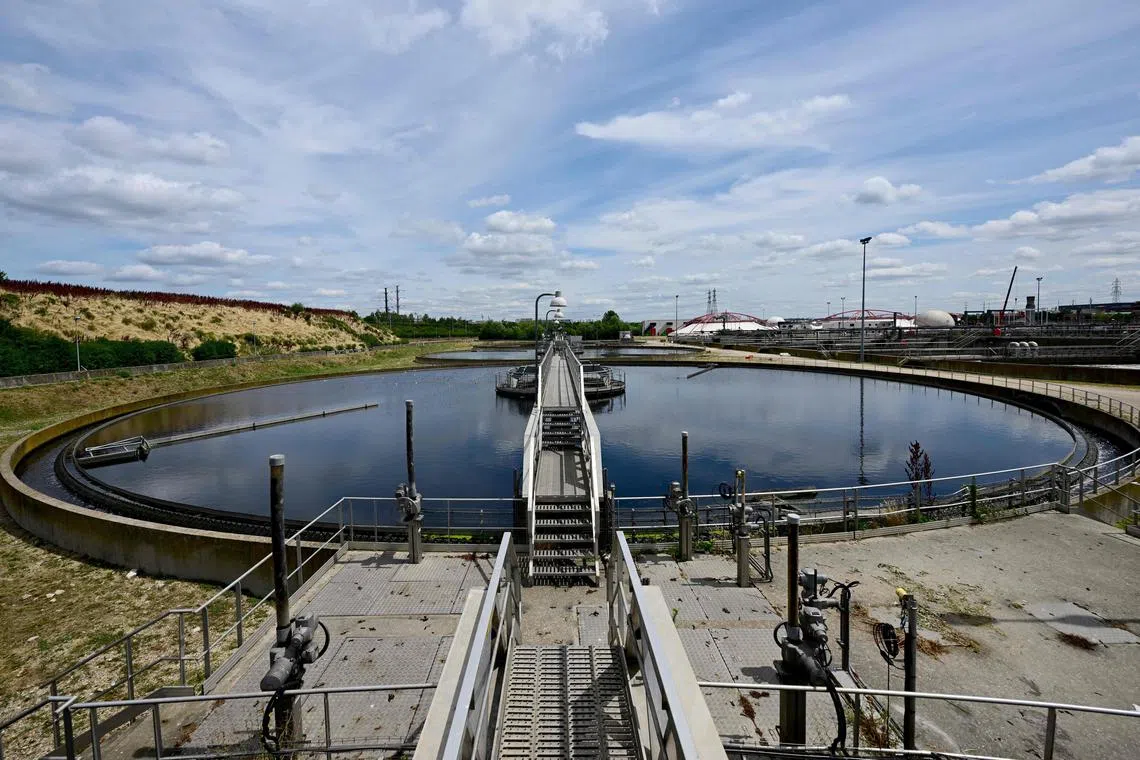Paris holds its breath for Olympic swimming events in murky river Seine
Sign up now: Get the biggest sports news in your inbox

A view of the Seine-Valenton wastewater treatment plant in Valenton, south-east of Paris.
PHOTO: AFP
Follow topic:
PARIS – Organisers of the Olympic and Paralympic Games in Paris can be forgiven for feeling a little queasy over their commitment to hold open-water swimming in the spectacular but not quite yet pristine river Seine.
Last August, the swimming marathon test events were cancelled because the water was too dirty
However, the city of Paris has insisted “there is no Plan B”
The course for the men’s and women’s 10km events at the Games will start at the iconic Pont Alexandre III bridge and, with the Invalides and Eiffel Tower in the background, head 1km down river past other famed attractions, including the Musee d’Orsay and the Grand Palais.
Perhaps appropriately, it passes the newly renovated Paris Sewer Museum before looping back.
It is a route chosen to showcase the beauty of Paris. It is also politically symbolic – swimming has been banned in the Seine since 1923, but various Paris mayors have vowed to open it up.
The current Mayor, Anne Hidalgo, has also promised she will take the plunge before the Olympics start and that the public will be allowed to swim at three locations by 2025.
City officials argue that the quality of the water has improved, but none of the samples collected between June and September 2023 met European standards on the minimum quality of water for swimming.
The big problem is faecal matter. The bacteria in the water increases sharply when heavy rain sweeps debris and untreated wastewater into the river from the banks and overflowing drains and sewers.
The open-water swimming last August was cancelled after a huge downpour – the worst in nearly six decades – sent E. coli readings to six times the target level set by World Aquatics.
To counter the issue, the authorities have invested €1.4 billion (S$2.04 billion) in five projects designed to store and clean the sewage water, in turn limiting the use of the Seine as a sewer. A rainwater treatment plant just east of Paris was unveiled on April 23.
The weather remains the “main risk”, officials concede, with the chief fear being “exceptional rainfall”, and the only backup plan for the swimming is postponing the events by a few days.
“There is no option to move the event, the triathlon and open-water swimming will be held in the Seine,” insisted Tony Estanguet, the head of the Paris 2024 organising committee.
Some athletes have admitted that they do not want to miss the occasion regardless of the conditions. To them, these are the Olympics and dirty water is often a constant risk in open-water races.
“Even if the water is dirty, I would rather swim in an electric atmosphere in the centre of Paris than in an anonymous stretch of water,” Italian double world champion Gregorio Paltrinieri said.
After winning silver at the World Championships in February, Frenchman Marc-Antoine Olivier said he, too, was excited.
“People may be afraid of what’s in the water, but swimming in a historic place is going to be incredible,” he added.
“(There is) a bit of a buzz about the conditions but, if we can swim, then there’s no problem. They won’t take the risk of us swimming and someone catching something.”
If the worst was to happen, however, the triathlons could become “duathlons” by dropping the swimming leg as some of the test events in Paris became last summer. AFP

